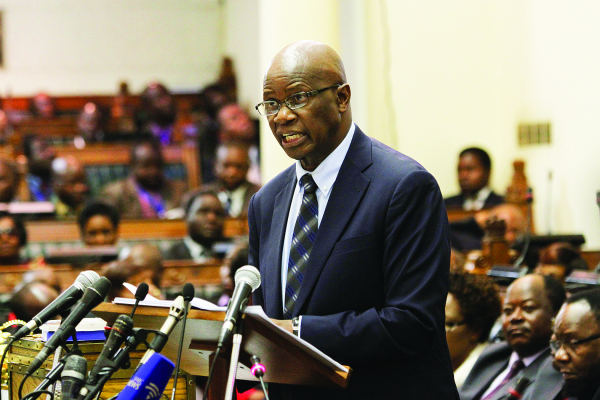
Civil service salaries are threatening to hit a staggering 120% of national budget in Zimbabwe as revealed by the minister of Finance.
Guest Column David Mhlanga
This is putting pressure on the critical economic revival agenda among other social objectives which are vital to the survival of the general population of Zimbabwe, like hospital drug supplies among other things. This comes as Zim’s first quarter trade deficit hit $1 billion, while the public service wage bill continues to skyrocket with President Emmerson Mnangagwa’s administration making for election-related salary increase commitments to country’s restless civil servants as reported in the media.
This article will try to shed light on the economic consequences of the high government spending (wage bill) on the economy.
Higher government spending could be on, welfare benefits, pension spending ageing population, requires higher government spending, but this has no impact on boosting productivity, education and training if successfully targeted government spending can increase labour productivity and enable higher long-term economic growth.
Infrastructure investment, higher spending on roads and railways can help remove supply bottlenecks and enable greater efficiency. This can also boost long term economic growth.
Lastly higher spending can go towards higher debt interest payments.
Roles of the government in an economy
- Chamisa under fire over US$120K donation
- Mavhunga puts DeMbare into Chibuku quarterfinals
- Pension funds bet on Cabora Bassa oilfields
- Councils defy govt fire tender directive
Keep Reading
The government has a huge role to play in the economy. Some of its key roles are as follows;
Provides a well-functioning legal and political system
Any economy facing political or economic turmoil is not conducive for economic growth, since it has very little trust in the economy. Moreover, there is uncertainty in the economy and people are also unwilling to invest. The government needs to make sure that there is a stable political environment. It’s very important on the part of the government to provide good legal and political framework.
Plays regulatory role to provide a competitive market
There should be certain regulations to ensure that the economy does not drift to the monopolistic situation. The government needs to think about trade policies with foreign countries, regulation on natural resources available in our country etc.
Keep economic inequality in check
Great disparity among masses may lead to a certain amount of unrest in the economy. This disparity causes imbalances in goods and capital market. Hence, the government needs to provide schemes and policies via taxes or social spending to keep inequality in check.
Before understanding how government spending affects the economy, let’s first understand how government earns and spent its money
Stimulate the economy by increasing government spending
This was one of the philosophies given by one of the renowned economist, John Maynard Keynes. He was of the view that government’s role is very important when the economy is in recession or depression when it should increase spending to have a pickup in the economic activity. The Keynesian macroeconomic model advocates an active government intervention in the economy through an increase in government spending, in order to stimulate the demand for goods and services during periods where there is lack of demand (low demand) and put the unemployed back to work.
It is equally important to give behaviour of the economy of Zimbabwe for a period 1960-2016.
Generally, the economy was growing from 1960 to 2016, however, the period 2000 to 2008 the economy was in a recession, from 2008 to 2016 the economy was generally growing. The purpose of this article is to give an economic perspective on how high government spending can affect the economy.
Increased government spending is likely to cause a rise in aggregate demand. This can lead to higher growth in the short-term. Higher government spending will also have an impact on the supply-side of the economy, depending on which area of government spending is increased.
Other, proponents of government spending claim that it provides public goods that markets generally do not produce, such as military defence, enforcement of contracts, and police services.
Standard economic theory holds that individuals have little incentive to provide these types of goods because others tend to use them without paying. However, high government spending (high wage rates) can have negative implications on the economy:
It depends on how the government spending is financed. If government spending is financed by higher taxes, then tax rises may counter-balance the higher spending, and there will be no increase in aggregate demand.
Some economists would argue increasing government spending through higher taxes would lead to a more inefficient allocation of resources, as governments tend to be less effective in spending money.
If the economy is close to full capacity, higher government spending can lead to crowding out. This is when the government spends more, but it has the effect of reducing private sector spending. For example, if the government borrows from the private sector, the private sector has lower savings for private investment.
The impact of government spending also depends on the state of the economy. If the economy is close to full capacity, then higher government spending may cause inflationary pressures and little increase in real GDP. If the economy is in recession, and the government borrows from the private sector, it can act as expansionary fiscal policy to boost economic growth.











